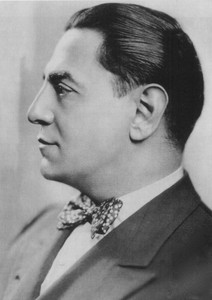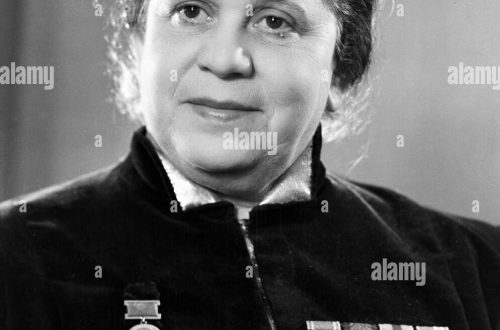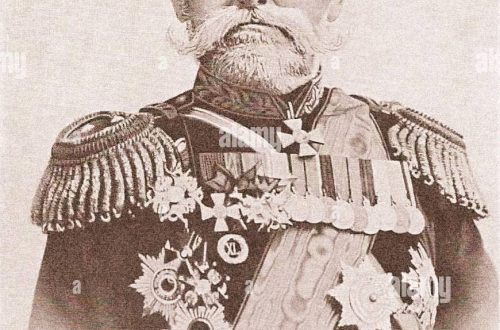
Tito Schipa (Tito Schipa) |
Tito Schipa

The name of the Italian singer Skipa is invariably named among the names of the most famous tenors of the first half of the XNUMXth century. V.V. Timokhin writes: “… Skipa became especially famous as a lyricist. His phrasing was distinguished by a richness of expressive nuances, he conquered with tenderness and softness of sound, rare plasticity and beauty of the cantilena.
Tito Skipa was born on January 2, 1889 in southern Italy, in the city of Lecce. The boy was fond of singing since childhood. Already at the age of seven, Tito sang in the church choir.
“Opera troupes often came to Lecce, recruiting little ones for the temporary choir of their theatre,” writes I. Ryabova. – Little Tito was an indispensable participant in all performances. Once the bishop heard the boy singing, and at his invitation, Skipa began to attend the theological seminary, where his favorite activities were music lessons and the choir. At the seminary, Tito Skipa began to study singing with a local celebrity – amateur singer A. Gerunda, and soon became a student at the conservatory in Lecce, where he attended classes in piano, music theory and composition.
Later, Skipa also studied singing in Milan with a prominent vocal teacher E. Piccoli. The latter helped his student to make his debut in 1910 on the opera stage of the city of Vercelli as Alfred in the Verdi opera La traviata. Soon Tito moved to the capital of Italy. Performances at the Costanci Theater bring great success to the young artist, which opens the way for him to the largest domestic and foreign theaters.
In 1913, Skipa swims across the ocean and performs in Argentina and Brazil. Returning home, he again sings at the Costanzi, and then at the Neapolitan theater San Carlo. In 1915, the singer made his debut at La Scala as Vladimir Igorevich in Prince Igor; later performs the part of De Grieux in Massenet’s Manon. In 1917, in Monte Carlo, Skipa sang the part of Ruggiero at the premiere of Puccini’s opera The Swallow. Repeatedly the artist performs in Madrid and Lisbon, and with great success.
In 1919, Tito moved to the United States, and became one of the leading soloists of the Chicago Opera House, where he sang from 1920 to 1932. But then he often tours in Europe and other American cities. From 1929, Tito periodically performed at La Scala. During these trips, the artist meets with outstanding musicians, sings in performances conducted by major conductors. Tito had to perform on stage and together with the most famous vocalists of that time. Often his partner was the famous singer A. Galli-Curci. Twice Skipa was lucky enough to sing along with F.I. Chaliapin, in Rossini’s The Barber of Seville at La Scala in 1928 and at the Colon Theater (Buenos Aires) in 1930.
Meetings with Chaliapin left an indelible mark on the memory of Tito Skipa. Subsequently, he wrote: “In my lifetime I have met many outstanding people, great and brilliant, but Fyodor Chaliapin towers over them like Mont Blanc. He combined the rare qualities of a great, wise artist – operatic and dramatic. Not every century gives the world such a person.
In the 30s, Skipa is at the zenith of fame. He received an invitation to the Metropolitan Opera, where in 1932 he made his debut in Donizetti’s Love Potion with great success, becoming a worthy successor to the traditions of the famous Beniamino Gigli, who had recently left the theater. In New York, the artist performs until 1935. He sang for another season at the Metropolitan Opera in 1940/41.
After the Second World War, Skipa performed in Italy and in many cities around the world. In 1955 he leaves the opera stage, but remains as a concert performer. He devotes a lot of time to social and musical activities, passing on his experience and skills to young singers. Skipa leads vocal classes in different cities of Europe.
In 1957, the singer went on tour in the USSR, performing in Moscow, Leningrad and Riga. Then he chairs the jury of the vocal competition of the VI World Festival of Youth and Students in Moscow.
In 1962, the singer made a farewell tour of the United States. Skipa died on December 16, 1965 in New York.
The prominent Italian musicologist Celetti, who wrote the foreword to Skipa’s memoirs, published in Rome in 1961, claims that this singer played a significant role in the history of the Italian opera theater, having influenced the tastes of the public and the work of his fellow performers with his art.
“Already in the 20s, he was ahead of the demands of the public,” Cheletti notes, “refusing to use banal sound effects, being famous for his excellent simplicity of vocal means, careful attitude to the word. And if you believe that bel canto is organic singing, then Skipa is its ideal representative.”
“The singer’s repertoire was determined by the nature of his voice, a soft lyrical tenor,” writes I. Ryabova. – The interests of the artist were mainly focused on the operas of Rossini, Bellini, Donizetti, on some parts in the operas of Verdi. Singer-artist of great talent, possessing extraordinary musicality, excellent technique, acting temperament, Skipa created a whole gallery of vivid musical and stage images. Among them are Almaviva in Rossini’s The Barber of Seville, Edgar in Lucia di Lammermoor and Nemorino in Donizetti’s Potion of Love, Elvino in Bellini’s La Sonnambula, the Duke in Rigoletto and Alfred in Verdi’s La Traviata. Skipa is also known as a remarkable performer of parts in operas by French composers. Among his best creations are the roles of Des Grieux and Werther in the operas by J. Massenet, Gerald in Lakma by L. Delibes. An artist of high musical culture, Skipa managed to create unforgettable vocal portraits in V.-A. Mozart”.
As a concert singer, Skipa primarily performed Spanish and Italian folk songs. He is one of the best performers of Neapolitan songs. After his death, the artist’s recordings are constantly included in all sounding anthologies of the Neapolitan song published abroad. Skipa repeatedly recorded on gramophone records – for example, the opera Don Pasquale was completely recorded with his participation.
The artist demonstrated high skill and starring in numerous musical films. One of these films – “Favorite Arias” – was shown on the screens of our country.
Skipa also gained fame as a composer. He is the author of choral and piano compositions and songs. Among his major works is the Mass. In 1929 he wrote the operetta “Princess Liana”, staged in Rome in 1935.





